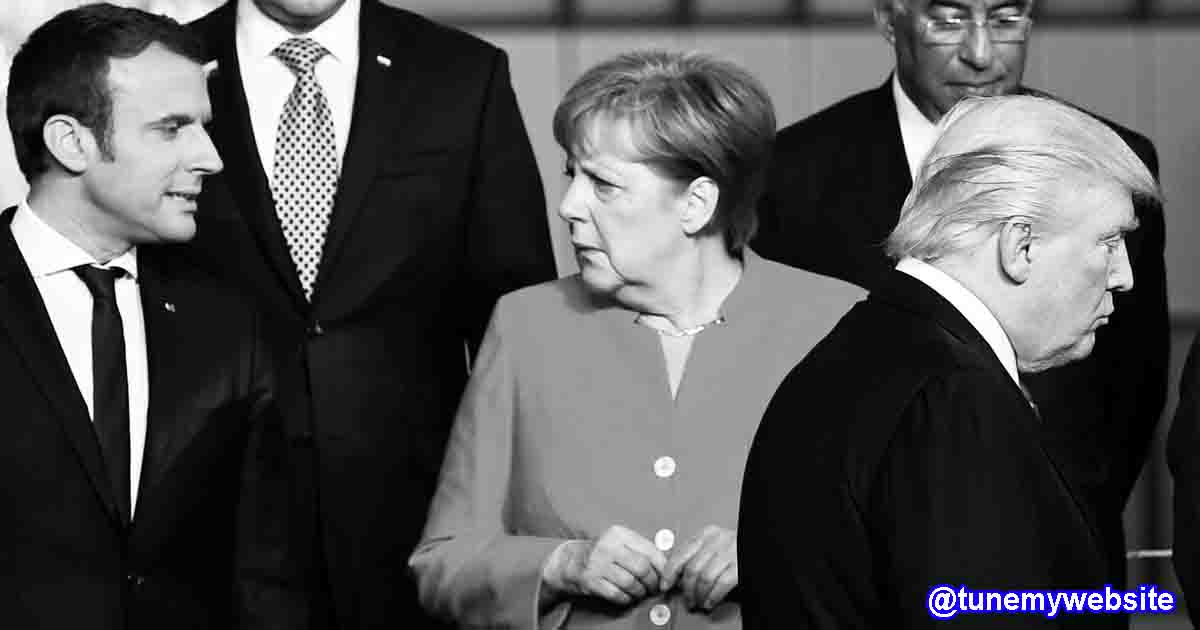US considering imposing billions new European goods tariffs is the direct result of the fact that Washington is thinking about new levies on $3.1 billion-worth of fares from France, Germany, Spain, and the United Kingdom, in a move that could bring about additional flare-ups in transoceanic exchange pressures.
The most recent measures by the US were first detailed by Bloomberg, which refered to a notification from the Office of the US Trade Representative. As per the report, discharged on Tuesday and accessible for open remark until July 26, the move is connected to the US-EU line over airplane appropriations.
The proposed extra import obligations, of up to 100 percent, may focus on a wide scope of products, including chocolate, espresso and olives, just as some mixed refreshments, for example, brew, gin and vodka. Aside from food, trucks and a few devices may likewise be remembered for the rundown of "30 tax subheadings with a surmised estimation of $3.1 billion as far as the assessed import exchange an incentive for schedule year 2018."
Simultaneously, Washington is pondering climbing levies on airplane delivered in France, Germany, Spain or the United Kingdom. Moreover, different food imports from those nations, along with those of different individuals from the European Union, might be hit with extra duties.
The measures could target European extravagance brands, for example, Givenchy and Hermes, just as French combination LVMH, as indicated by Bloomberg. Obligations on liquor may hurt deals of British spirits organizations just as German brew makers, as they will prompt more significant expenses for their items in the US.
The proposition has just met resistance in the US, with the household refined spirits segment saying that extra duties "would just heighten exchange strains over the Atlantic and further risk American organizations and friendliness occupations" that are now under tension due to the coronavirus pandemic.
"The more drawn out these debates go uncertain, the more prominent the danger of significantly more levies on our industry," the Distilled Spirits Council of the US (Discus) cautioned. It likewise gave an update that Brussels recently fought back with its own taxes on US rum, vodka, and liquor and is set to climb obligations on American Whiskey to 50 percent the following spring.
The news sent European financial exchanges lower on Wednesday, with shares in London dropping around two percent, while key records in both in France and Germany were down around 1.7 percent.
US considering imposing billions new European goods tariffs

US considering imposing billions new European goods tariffs
Related:
US LNG sends out accident by over half
US melted flammable gas sends out have smashed by in excess of 50 percent since January as the US turns into the swing provider for business sectors.
Truly low gaseous petrol costs from Asia to Europe and lower request in the pandemic have brought about US fares of melted petroleum gas (LNG) dropping from 8.1 billion cubic feet for every day (Bcf/d) in January to a normal fare volume of simply 3.2 Bcf/d in July, the US Energy Information Administration (EIA) said on Tuesday.
Milder winter, lower request in the pandemic, and high inventories, particularly in Europe, have sent gaseous petrol costs at the key benchmarks in Asia and Europe to record lows as of late, making US fares of LNG uneconomical, the EIA said.
A year ago, the United States turned into the world's third-biggest LNG exporter on a yearly premise, behind just Qatar and Australia, as a few LNG send out offices fired up tasks in the US in 2019.
Be that as it may, this year, purchasers have been dropping cargoes of US LNG as request declined and inventories rose, bringing down interest for American LNG, which likewise got uneconomical to transport to business sectors in Asia and Europe, where the local benchmark costs hit record lows.
The US has become the world's swing maker of LNG as liquefaction limit tumbled as of late in the midst of a LNG overabundance, low costs, and feeble interest in the pandemic, IHS Markit said in an examination a month ago.
"The inescapable has occurred. US LNG limit use has started a turndown in light of market powers exacerbated by COVID-19. We are seeing a memorable occasion where US LNG is assuming the new job of swing provider," Terrell Benke, official executive, IHS Markit, said in an announcement.
Complete US LNG limit use has declined to 65 percent, and further drops are coming in the late spring when usage rates could dip under 50 percent, IHS Markit said toward the finish of May.
In view of the quantity of dropped cargoes for the coming months, the EIA expects US LNG send out limit will be used at under 50 percent in June, July, and August 2020.